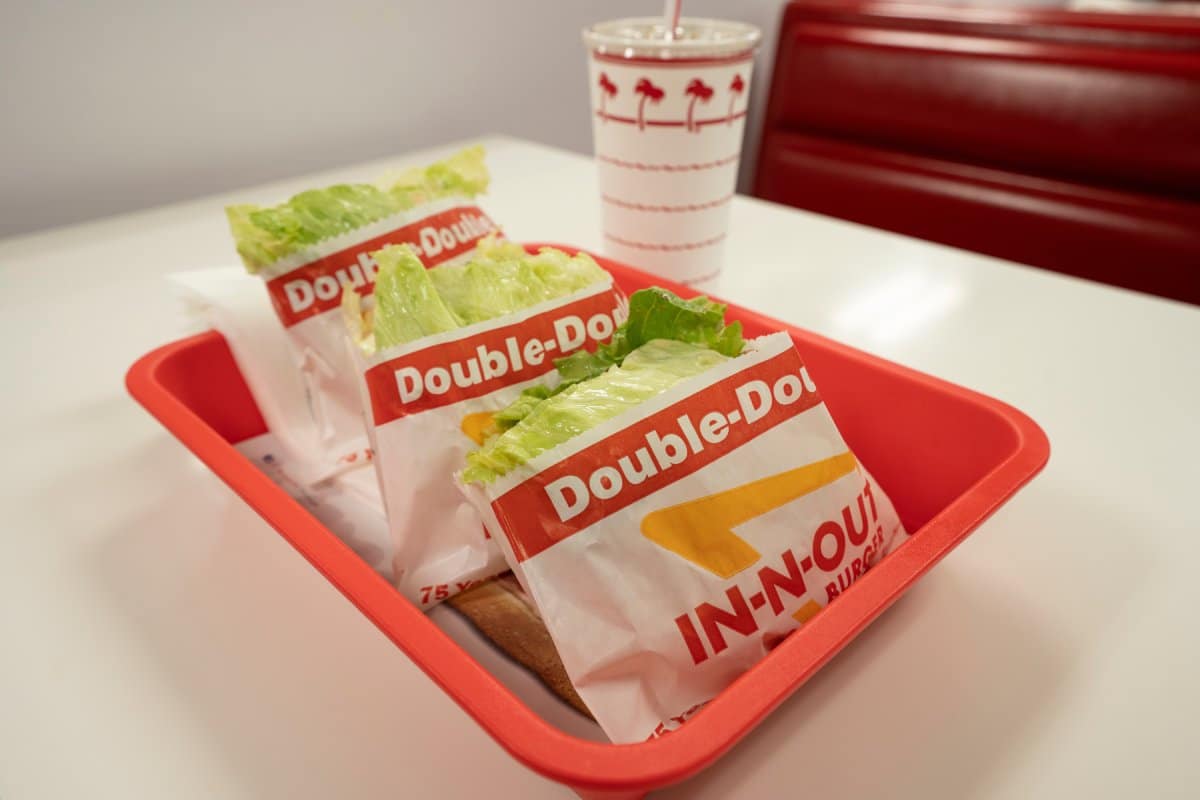The president of one of California’s favorite burger chains has spoken out about the recent state minimum wage increase.
In-N-Out Won’t Hike Prices

Lynsi Snyder, president of fast-food chain In-N-Out, has spoken out about her “obligation” to maintain the chain’s restaurant prices after California raised the state’s fast food minimum wage rate.
A West Coast Icon
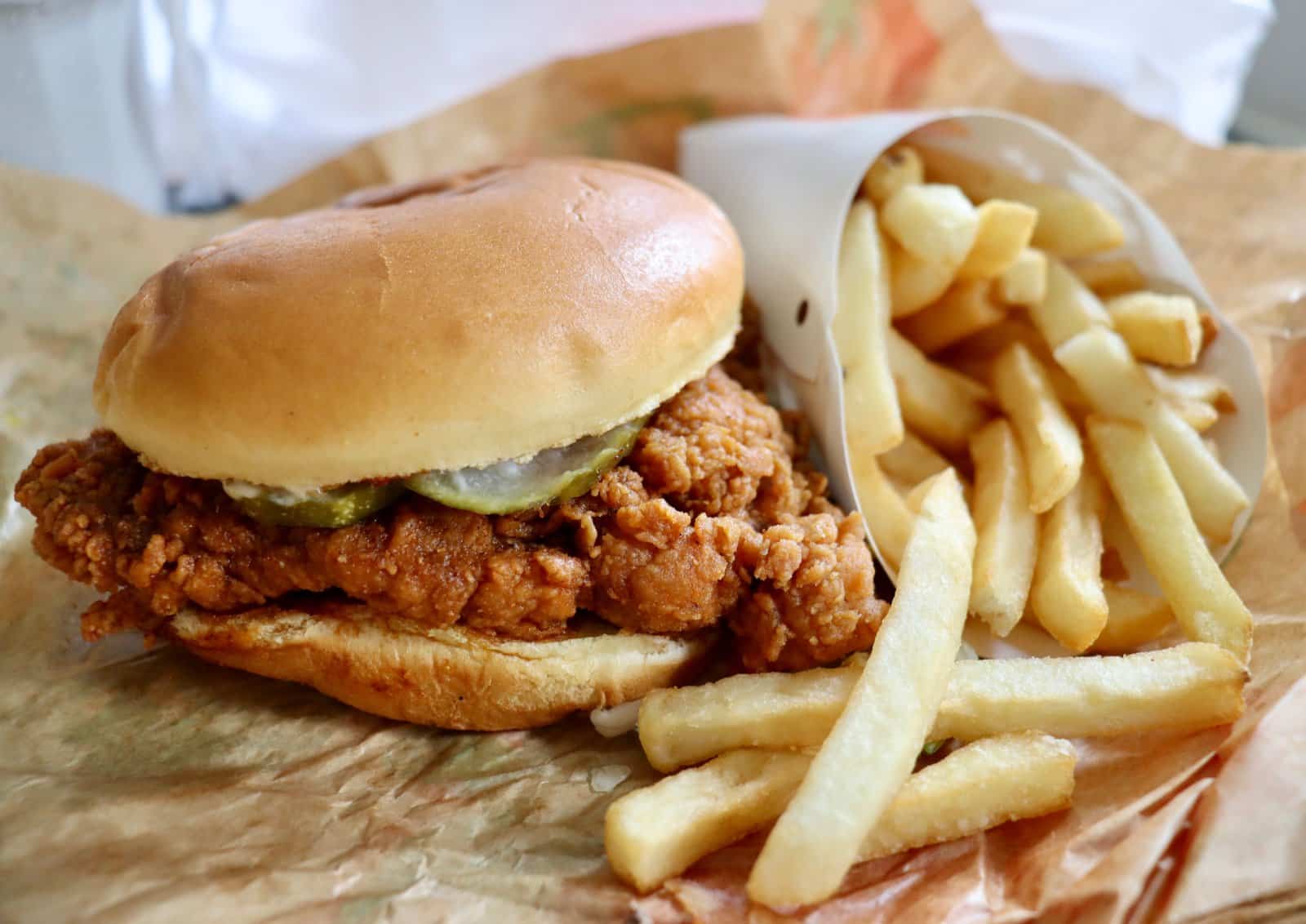
The chain – which is known for its burgers, fries, and milkshakes – is one of the most iconic fast food chains in California, with 400 stores.
From California Down

Most are located in the Golden State, with others scattered across the Southwest in states including but not limited to Arizona, Texas, Nevada, and Colorado.
Another Blow to Fast Food Payroll

Like many other fast food outlets, In-N-Out has been impacted by the ever-increasing minimum wage rate in California. On April 1, an official mandate changed the state minimum wage for fast food workers to $20 per hour.
Prices Won’t Change
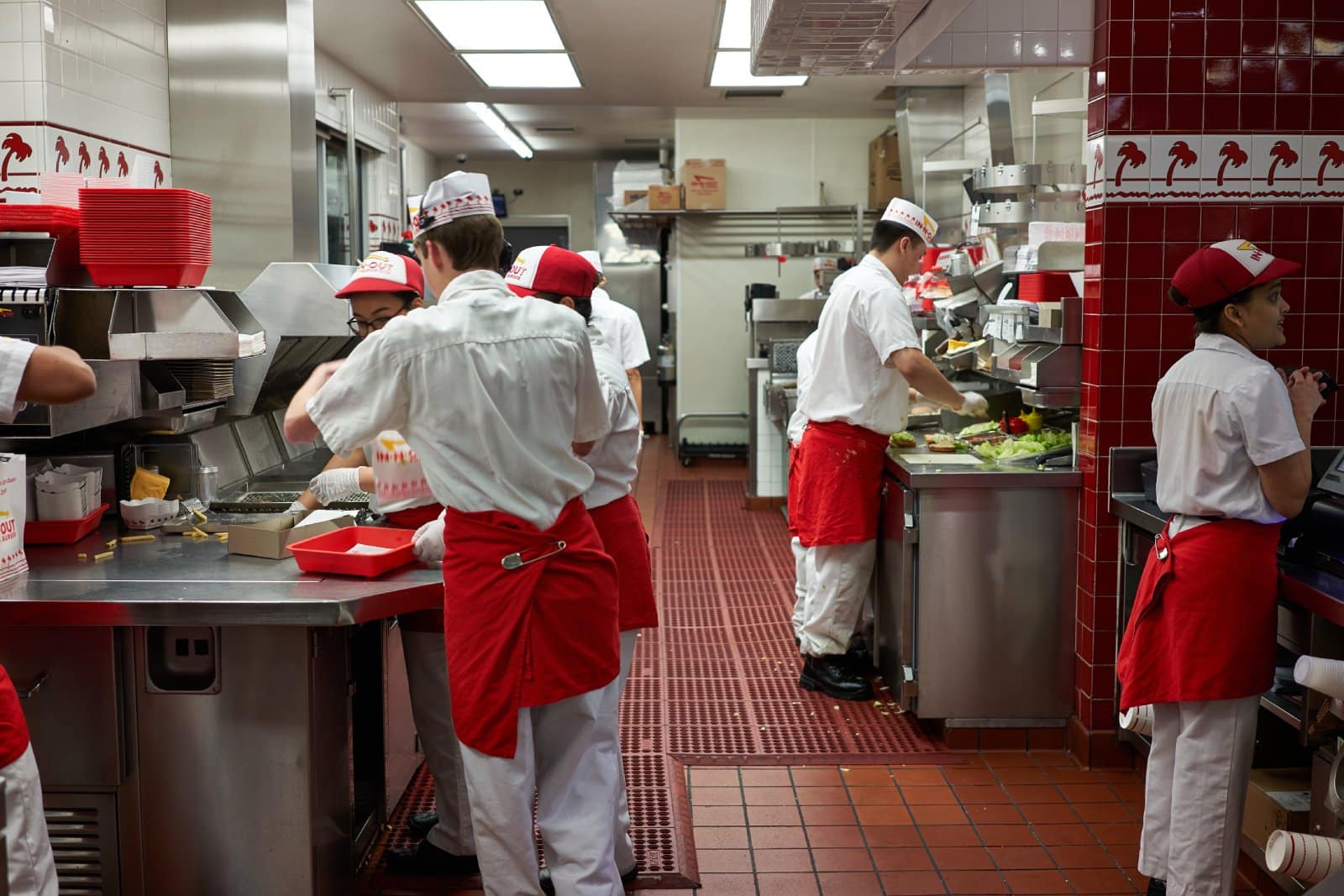
Unlike some other chain stores, In-N-Out is known for maintaining its low prices even in the wake of increasing operational costs. And company president Snyder has confirmed that this won’t change any time soon.
“Obligation to Look Out for Customers”

“I was sitting in VP meetings going toe-to-toe saying, ‘We can’t raise the prices that much, we can’t,’ because I felt such an obligation to look out for our customer,” Snyder said in an appearance on the Today show last week. “When everyone else was taking these jumps, we weren’t.”
Some Things Will Change

But that doesn’t mean that the chain would remain affected by minimum wage reforms. Snyder also announced that In-N-Out would not introduce franchising or mobile ordering for the foreseeable future.
East Coast Expansion Ruled Out

She also ruled out any chances of the chain expanding to the East Coast either, in another bid to keep costs low.
Individual Stores Raise Prices

While Snyder has made a pledge to maintain low prices across the company, some individual stores have still raised prices. According to the New York Post, one Los Angeles store recently raised burger prices by 25 cents.
The 6th President

Snyder became the sixth overall and third-generation in her family to be president of In-N-Out in 2010 when she was just 27 years old, after a decade of working her way up from a low-level employee position.
Survive At All Costs

She has helped the company survive through the pandemic, rising inflation, and increasing concerns over incremental minimum wage increases.
Vaccination Drama

But it hasn’t been smooth sailing by any means. Under Snyder, In-N-Out was almost forced to shut down all of its California locations after refusing to check customer vaccination status during the Covid-19 pandemic.
New Law In Action

The new law hiked the fast food minimum wage from $16 to $20 per hour, specifically for restaurant chains with at least 60 locations in the U.S., not including restaurants that make and sell bread using their own kitchens.
Full-Time Salary

It means that a full-time employee working for such a company will now earn an annual salary of $41,600.
An Important Step for Fast Food Workers

The AB 1228 bill was officially passed into law by Governor Gavin Newsom but did not come into effect until April.
Newsom championed the bill as an important step for fast-food workers who “have been fighting for higher wages and better working conditions.”
“One Step Closer”

He described the California food industry as being “one step closer to fairer wages, safer and healthier working conditions, and better training by giving hardworking fast-food workers a stronger voice and seat at the table.”
Mcdonald’s Takes a Different Route
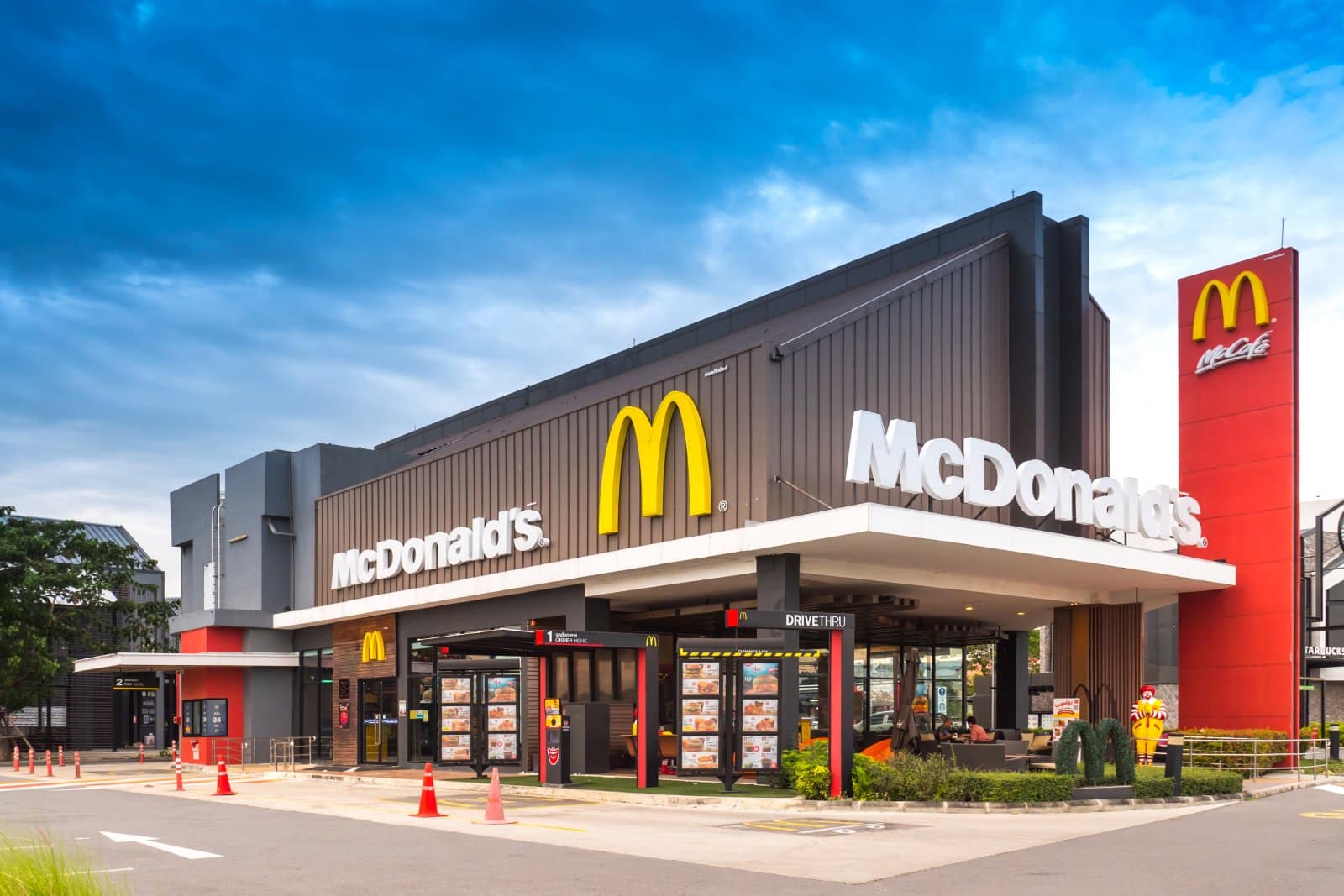
In-N-Out may be a minority in their bid to resist price changes in California. Mcdonald’s CEO Chris Kempczinski announced via conference call in November that the franchise would be forced to increase prices and cut costs to compensate for the wage increase.
“A Certain Hit in the Short-Term”

“There will certainly be a hit in the short-term to franchise cash flow in California,” he said. “Tough to know exactly what that hit will be because of some of the mitigation efforts. But there will be a hit.”
Doing What They Can

Other fast-food companies have gone to great lengths to mitigate the effects of the bill and, in some cases, to avoid it altogether.
Raising Prices, Closing Stores
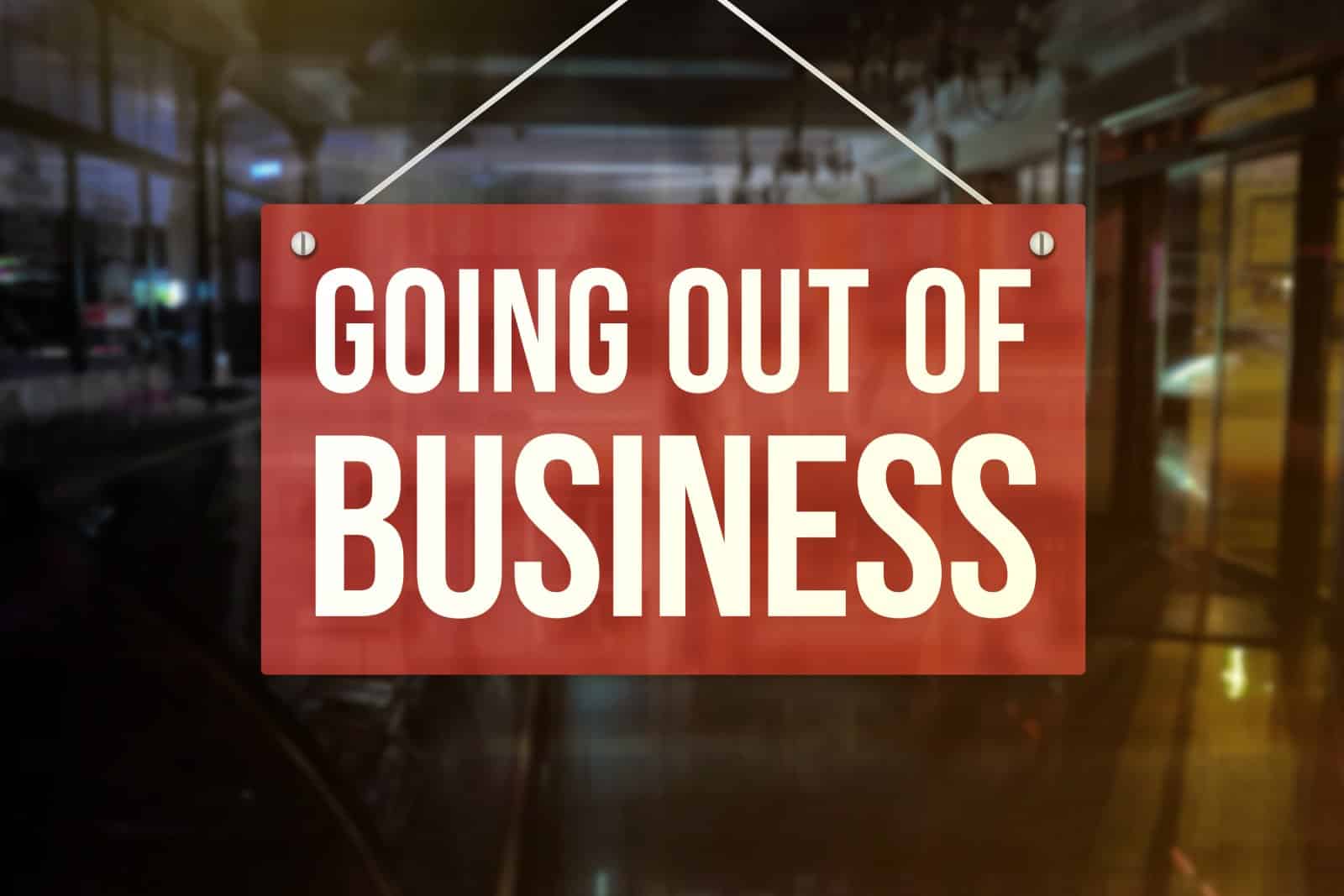
Restaurant franchises like Burger King and Hart House moved to raise menu prices in California after the bill took effect on April 1. Others, including pizza chains, closed locations to avoid meeting the bill requirements.
The post In-N-Out Commits to Low Prices Despite California Wage Hike first appeared on Wealthy Living.
Featured Image Credit: Shutterstock / Tada Images.
The content of this article is for informational purposes only and does not constitute or replace professional financial advice.

